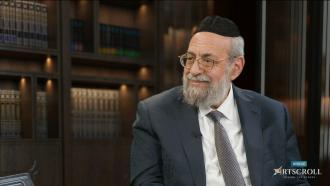Johns Hopkins researcher Gregg Semenza was awarded the 2019 Nobel Prize in physiology or medicine by the Nobel Assembly, Johns Hopkins University officials announced Monday.
Semenza, 63, a C. Michael Armstrong Professor of Medicine at the Johns Hopkins University School of Medicine, was recognized by the Nobel Assembly for his discoveries in how cells respond to low oxygen levels, which have the potential to help officials further understand the impacts of numerous illnesses.
"The discovery, along with Semenza's additional work clarifying the molecular mechanisms of oxygen regulation in cells, has far-reaching implications in understanding the impacts of low oxygen levels in blood disorders, blinding eye diseases, cancer, diabetes, coronary artery disease, and other conditions," the university wrote in a press release.
Officials say Semenza shares the award with William Kaelin, a professor of medicine at Harvard University and the Dana-Farber Cancer Institute, and Sir Peter Ratcliffe, a professor at Oxford University and at the Francis Crick Institute.
"The seminal discoveries by this year's Nobel laureates revealed the mechanism for one of life's most essential adaptive processes," a Nobel news release states. "They established a basis for our understanding of how oxygen levels affect cellular metabolism and physiological function. Their discoveries have also paved the way for promising new strategies to fight anemia, cancer and many other diseases."
Semenza's studies revolve around hypoxia-inducible factor 1, or HIF-1, the "protein that switches genes on and off in cells in response to low oxygen levels," according to the university's news release. The study focuses on how HFIF-1's role in cancer, ischemia and chronic lung disease. Semenza's discoveries lay the groundwork in the development of drugs that could potentially kill cancer cells by ridding them of their oxygen supply that a tumor would need to grow.
Also, his research could lead to the development of medicines to help tissues affected by certain conditions survive on low oxygen levels.
According to the university, Semenza has authored more than 400 research articles and book chapters that have been cited over 130,000 times.
Semenza marks the 28th faculty member or graduate of Johns Hopkins to win a Nobel Prize.
For his work, Semenza will receive a medal, diploma and cash award at a ceremony in Stockholm. The date of the ceremony has yet to be announced.
















